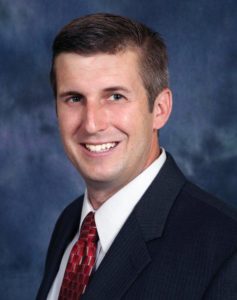By James Maroney
State Sen. D-14

James Maroney
At a recent telephone town hall, a gentleman asked me what the difference is between an expense and an investment. This may not be as easy of a question as it would seem.
The answer is often in the eye of the beholder. Many people consider their home an investment. But Robert Kiyosaki, author of Rich Dad, Poor Dad, famously said that the house you live in is not an investment, rather it is an expense.
After some thought, I answered that an investment is an expenditure that yields some sort of return or savings greater than the money expended.
I believe that the gentleman asked the question because I referenced the historic investments we made in early childhood education this past legislative session. I am proud that in our recent state budget we invested $150 million into early childhood education. It is the largest investment that the state has ever made.
This comes at a critical time, as many economists are attributing some of the decline in workforce to a lack of availability of child care. There are 24,000 fewer children enrolled in early childhood education than before the pandemic, and it is not because of a decline in the number of children. Unfortunately, some of it is because of a lack of available teachers, so the centers cannot handle as many children.
Investing in professional development and paying early childhood education teachers has two benefits. First, it ensures that our children are receiving high quality early childhood education. Studies show the return on investment of between 7 and 10 percent, with some studies showing it as high as 13 percent. In fact, according to the National Forum on Early Childhood Policy and Programs, high quality early childhood programs can yield a $4 to $9 dollar return per $1 invested.
The second benefit of hiring more teachers is that it opens more child care slots so that we can enroll more children, allowing more parents to return to the workforce. A win-win.
However, we know that children are more than just numbers. They are our future, and when we try to quantify the benefit of providing high quality early childhood education, we sometimes forget that the real impact is on individuals. Access to high quality early childhood education can change the trajectory of someone’s life.
We know that earlier interventions can be curative, rather than palliative. In fact, a study in Salt Lake City found that by starting with children earlier, they are sometimes able to make the interventions necessary so that a child will not require special education services in the future.
One question, then, may be which interventions yield the best results and how do we track those outcomes. This is an area I am researching and planning on proposing future legislation around. I am working with some of my fellow senators to create a “building better futures” fund, so we can invest in both our children and our collective future.